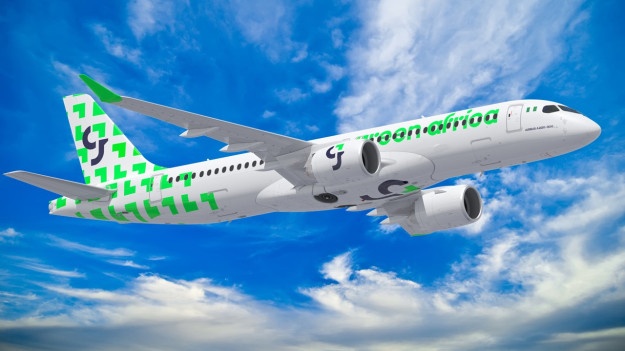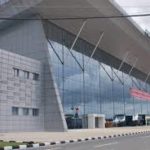
New airlines have started flight operations in Nigeria, others are about to start, but there has been persistent argument that Nigerian carriers do not make profits. Chinedu Eze examines the motive behind the establishment of these airlines and their survival in the long term.
It is almost a cliché in the Nigerian aviation industry that Nigerian airlines do not make profits, but they make huge revenue, but after deducting the cost of aviation fuel, cost of aircraft spares, cost of maintenance and payment of staff, the airline makes very marginal or no profit at all.
But since 2019, the industry has recorded new entrants, including Ibom Air, United Nigeria Airlines, Green Africa, which has just received its operating licence and Kanem Air and NG Eagle are on the queue to receive their operating licence, Air Operator Certificate (AOC).
Benefits
In a recent study, the International Air Transport Association (IATA) report on passenger facilitation and cost competitiveness and measures of air cargo trade facilitation, said that if air transport’s unique contribution is the bridges it creates between cities, then the flows of goods, people, investment and ideas that stimulate economic development must flow unimpeded to maximise their contribution to consumers and the wider economy.
“Here we measure how freely goods and people flow across borders. Nigeria’s passenger facilitation (1.8/10) scores below the African average (3/10). On the World Economic Forum’s Travel & Tourism Competitiveness Index, the country ranks 127th for visa openness and 69th out of 136 countries for cost competitiveness. In all these scores and ranks, higher is better.”
IATA also forecasted that air transport market in Nigeria would grow by 174 per cent in the next 20 years. This would result in an additional 9.4 billion passenger journeys by 2037. If met, this increased demand would support approximately $4.7 billion of GDP and almost 555,700 jobs.
Why Establish Airlines?
Industry experts say that primarily the reason that many investors establish airlines is to make profits. There may be other reasons. For example, the Chairman and CEO of Air Peace, Allen Onyema said that what motivated him to establish the airline was to create jobs. But profit making is behind the major reason for investment because without profit there won’t be any sustenance. However, many Nigerian airlines lament that the business is unprofitable in the country. Looking at ticket sales and the cost of aviation fuel and other obligations for successful operation, they noted that airlines might not be breaking even.
Aviation legal luminary, who has monitored the industry for several years and is behind the establishment and running of many airlines, told THISDAY that Nigerian airlines do not make profits from ticket sales and that explains why there is no correlation between the cost of operation and the cost of the tickets. In other words, cost of tickets does not reflect the cost of operation, which must be below the revenues for the airline to make profits.
Money Laundering
The aviation lawyer told THISDAY that airlines do not make profit from ticket sales and wondered how they survive over the years. He recalled the period during the defunct Nigerian Airways Limited (NAL) when the airline was generating revenue in foreign currency without flying to major international destinations.
“Nigeria is the only place that I know where an airline makes more money for not flying. Then the airline (NAL) was collecting so much from KLM and British Airways. They were making money from nothing. What I do know is that money laundering is going on. Maybe, not all the airlines, but I know some airlines would officially earmark $5 million for aircraft acquisition and they will go and buy scrap for $500,000. How much did they get officially from FOREX? There are too many leakages. Recently palliatives were given to some airlines and others in the industry with outrageous conditions. The payment was steeped in controversy. But instead of giving palliatives, why not give rebate on charges by the aviation agencies. I think that will benefit the airlines more.
“Those managing the industry do not want the airlines to succeed. The industry itself can yield profits but the way airlines are run in Nigeria makes them unprofitable. It may however be profitable for those who know how to use the airline business in Nigeria. The current business model of airlines in Nigeria cannot succeed. At N30, 000 for one hour flight, what kind of load factor will give an airline profit? It cannot be profitable; unless you have some other business model,” the renowned lawyer said.
He stressed that the way airline business in Nigeria is run is not profitable but the industry is profitable. He recalled being involved in an airline that operated special scheduled flights to Abuja and two other destinations with minimum of 80 per cent load factor but for over two years did not make profits. He regretted that in Nigeria there is no level playing field in the airline business because an airline may be made to pay outrageous customs tariff, while another may be exempted; yet, the two airlines are competing in the same market. He added that if Nigeria is sincere about airline business it could build one of the most successful hubs in Africa; just as RwandAir is doing in Kigali.
Challenges Before Start-up Airlines
The Managing Director of Flight Logistics Solutions, Amos Akpan told THISDAY that the new airlines would face some challenges, which include the fixing price per seat per route. He said this would be an issue because the calculations from the planning table would be far from the reality in the field operations.
“The reason being that the prices of the components of producing a flight keeps rising. If you planned when fuel was N180 per liter and the price becomes N310 per liter at the commencement of flight services, your economy is upstaged. Another factor is the insurance premium. There are unified regulatory requirements, lack of forex and the high cost of forex, daylight operations that restrict aircraft utilisation to 12 hours daily. The income of the potential air traveler has a ceiling; therefore, there is a ceiling the airline can raise airfare,” he observed.
He also noted that the hurdles of certification for operations are plenty and the process does not discriminate small operations from big and expansive operations, adding that skilled manpower with experience would be difficult for a fresh startup.
“You are required to bring in at least two aircraft before start of operations. The aircraft will stay on ground until you satisfy all requirements and be given air operations certificate.
The investment gestation period is so long that it is difficult for the intending operator to explain to investors why they keep spending without yielding returns,” he noted.
Developed Routes
Akpan said most start up airlines compete with old ones on the known routes and for them to increase their load factor they would have to bring down their fares and this is being done where operating cost is on the increase and in a very arbitrary way, as fuel marketers do not give airlines notice before they increase the cost of aviation fuel, known as Jet A1.
“The fresh start up in Nigeria first joins the market developed routes before going to new undeveloped or abandoned routes. This means it has to lower fares as bait in an environment where operating cost is rising above anticipated income. If it goes directly into developing new routes, it needs financial pockets to build the market, in an environment where funds to start a new airline are scarce and expensive,” he explained.
Akpan also warned that start up airlines have to be careful in drawing their business plan because of the fickle and sometimes ephemeral government policies, which sometimes become disincentive to investment.
“The start-up airline has to be careful with drawing its business plan. In Nigeria it is difficult to implement a business plan because of policy fluctuations and unstable business terrain. The potential exist in the sector but the enabling environment to exploit the potential is required. We know what to tackle and we repeat them in every seminar and symposia, yet those problems remain unsolved. High cost of funds, high cost of insurance premium, insufficient forex, no maintenance facilities, no spare parts base, insufficient skilled manpower, high cost of fuel, no corporate management culture, and corrupt systems in the government agencies. The same problem that dog the older airlines are the same problems waiting for the start-up airlines,” Akpan noted.

Survival and Merger
Industry expert and former CEO of Aero Contractors, Captain Ado Sanusi said the upcoming airlines may not saturate the market but noted that over time some of them would merge with stronger carriers.
“Now, I don’t think the number of airlines coming up will saturate the market. I do not think so. I think what will happen is that we will grow the aviation industry, to make sure that the strongest and best airlines will survive and will tend to absorb the weaker ones at the end of the day. Because the era of you establishing an airline, manage two or three aircraft for two years is over. You cannot sustain it,” he said.
Industry observers also said that Green Africa Airways, which has just obtained its AOC, seems to have strong promise; so is Ibom Air, which has so far kept a good operational record, but they noted that for Ibom Air to have a future, its ownership must have to be tinkered with.
“Ibom Air has a chance if they disengage it from government ownership. If they are smart they will put it in private placement. Let government take 15-20 per cent equity and not a controlling equity. Then they will get outsiders from the state to run it. The executive management should be driven from outside because after the current administration in the state, inside management would be suspected to be a stooge for the past government and that will not augur well for the airline. KPMG can be engaged to get the best hands to run it for a period of five years. In that way there won’t be interference, which eventually will kill the airline.
“So far the airline is effectively managed now and the top officials from outside the state, who are actually the engine of the current management, could be kept and the airline insulated from government to ensure its future,” industry experts who spoke to THISDAY said.
Many industry insiders who spoke to THISDAY believe that the new airlines and even the old ones are still in a tepid situation and might face precarious future, unless the industry review its policies geared towards sustaining the airlines and making them profitable.
THISDAY






